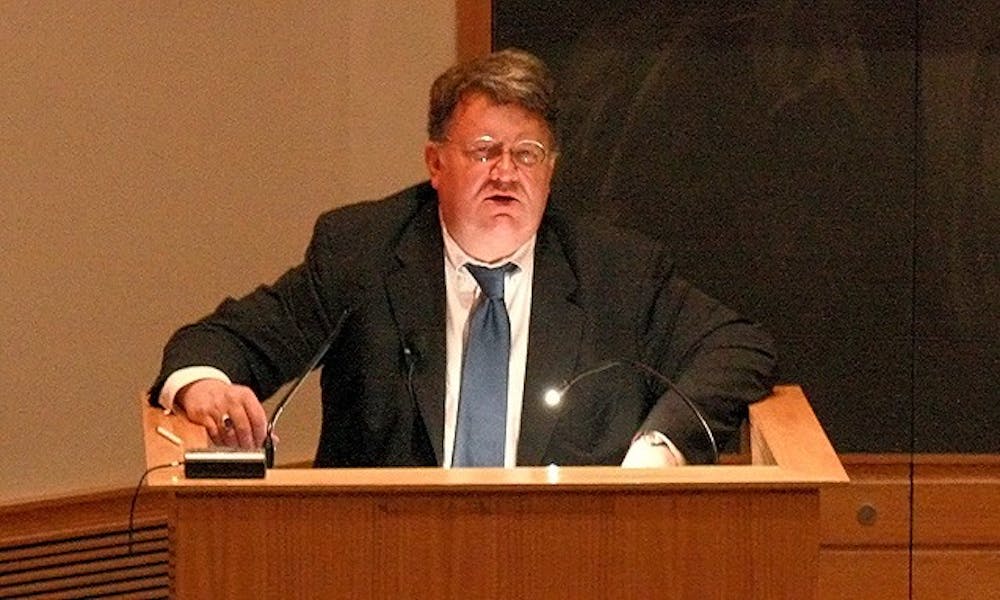Scott Horton, admitted jokingly, that he is no Al Gore. But those who attended his talk Thursday knew they had stepped into the right room.
Horton, a journalist, lawyer, professor and contributing editor of Harper’s Magazine, spoke Thursday on his extensive research regarding Guantánamo Bay. His talk, immediately after the former vice president visited campus, was a part of the conference “Weaving a Net of Accountability: Taking on extraordinary rendition at the state and regional level.”
Through extensive research with law students in New Jersey, Horton published an exposé in the March issue of Harper’s Magazine about the Guantánamo Bay Detention Camp.
On the evening of June 9, 2006, three prisoners died suddenly at Guantánamo. The U.S. government asserted that their deaths were suicides, but Horton’s research regarding the incident contends otherwise.
Horton interviewed several witnesses, sergeants and guards who worked in the camp and later came to the conclusion that the prisoners’ deaths were the result of severe torture by camp officials. He noted that the public announcement that the deaths were suicides was simply a government cover-up.
“The thing I thought most amazing about researching this is when I actually succeeded in identifying and interviewing prison guards—they all took it as a matter of given that of course the government’s story isn’t true. Everyone knew that,” Horton said. “They all, in fact, stated that they had been ordered not to contradict this official statement even though of course you know it’s not true.”
Although the prison in Guantánamo Bay was originally designed to contain high-risk terrorists, specifically al-Qaeda members, to obtain information, the U.S. government has deviated from their originally targeted prisoners. Horton noted that the key to enemy detainment is to be sure that the detainee is actually a hostile combatant.
“If you seize them on the battlefield somewhere, they are. But if you seize them shopping in a grocery store in France, because you think that they made some contribution to a charity that funded the hospital that once gave aid to a terrorist, and therefore they are subject to being detained—and believe it or not, the U.S. Department of Justice had made that argument—that’s not an enemy combatant,” Horton said.
Horton’s main topic of discussion Thursday pertained to the Guantánamo prisoners’ mistreatment, which he said was unconstitutional. Horton noted that President Barack Obama’s promise as a senator to close the Guantánamo Bay detention camp was not realized after he took office.
“Barack Obama voiced strong criticisms of Guantánamo in his story of campaign to the presidency but his impressive oratory has only been reflected in key policy choices,” Horton said.
Most of Horton’s research was derived from those who were in Guantánamo before Obama took office—those who said they were silenced by the George W. Bush administration, but spoke out after Obama promised to close the camp.
One of Horton’s key witnesses, Joseph Hickman, who was an Army staff sergeant at Guantánamo the night of the three deaths, said he gave his accounts with the assurance that he would not be silenced by a new administration.
“[Hickman] told me he really felt when he saw [Obama’s speech] that he was now free to talk about this,” Horton said.
Although the event was not well attended by Duke students, several members from sponsoring organizations like the University of North Carolina at Chapel Hill School of Law were in attendance.
Get The Chronicle straight to your inbox
Sign up for our weekly newsletter. Cancel at any time.

